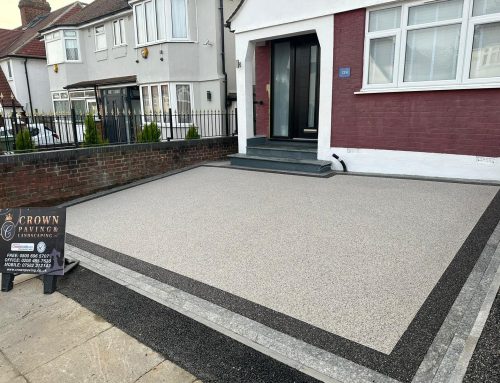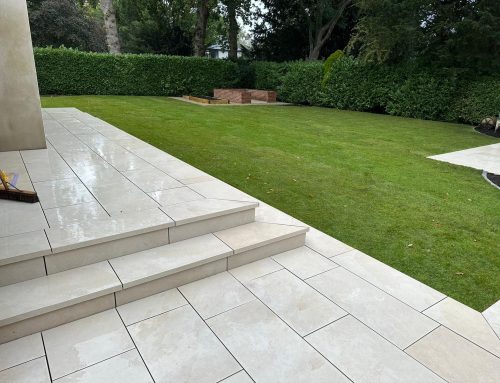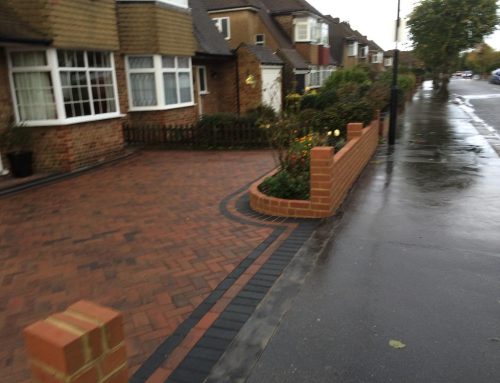Planning a new driveway is an exciting step toward improving your home’s kerb appeal, functionality, and overall value. But one of the biggest decisions you’ll face early on is choosing the right surface material. Two of the most popular options in East Sussex and beyond are tarmac and block paving. Both offer their own benefits, but the right choice for your property will depend on a number of factors—including your budget, usage, style preferences, and long-term goals.
In this blog, we’ll explore the key considerations that should influence your decision between tarmac and block paving, helping you to choose the most suitable solution for your home and lifestyle.
First Things First: What Are Tarmac and Block Paving?
-
Tarmac (short for tarmacadam) is a smooth, black surface made from a mixture of crushed stone and tar. It’s quick to install, relatively low-cost, and commonly used for roads, driveways, and paths.
-
Block paving involves laying individual concrete or clay bricks in patterns over a compacted base. It’s known for its decorative potential, strength, and traditional appearance.
At Crown Paving & Landscaping Ltd, we offer both options, tailored to meet the specific needs of each property in East Sussex and the surrounding areas.
1. Visual Appeal and Aesthetics
If the look of your driveway is a top priority, block paving gives you much more design flexibility.
Block Paving:
-
Available in a wide variety of colours, sizes, and patterns
-
Offers options like herringbone, stretcher bond, or basketweave layouts
-
Complements both modern and traditional properties
-
Can include decorative features such as borders and motifs
Tarmac:
-
Has a clean, uniform appearance
-
Available in red or black finishes
-
More suited to properties that value practicality over custom design
Verdict: Choose block paving if you want a visually impressive and tailored finish.
2. Budget and Cost Considerations
Cost is often a major factor when planning a new driveway. Generally, tarmac is more cost-effective than block paving—especially for large areas.
Tarmac:
-
Lower material and labour costs
-
Faster to install, which reduces project time
-
Ideal for homeowners seeking a solid surface on a tighter budget
Block Paving:
-
More expensive due to material variety and manual laying process
-
Adds greater long-term value and appeal
-
Worth the investment for a high-end finish
Verdict: Choose tarmac if you’re working with a tighter budget or need a quick solution.
3. Durability and Lifespan
Both surfaces offer good durability, but they differ in how they handle wear and tear.
Block Paving:
-
Very durable when installed properly
-
Individual blocks can be replaced if damaged
-
Doesn’t soften in hot weather
-
Strong load-bearing properties—ideal for driveways with frequent vehicle use
Tarmac:
-
Also strong and resilient
-
May soften in very hot weather
-
More prone to oil stains or indentations from heavy vehicles
-
Can crack over time if not maintained
Verdict: Block paving wins in terms of long-term durability and ease of repair.
4. Maintenance Requirements
All driveways need a bit of upkeep, but some require more attention than others.
Tarmac:
-
Requires occasional resealing to prolong life
-
Easy to clean, but oil stains can be difficult to remove
-
Weeds are unlikely to grow through, especially with proper edging
Block Paving:
-
Needs regular sweeping to prevent weed growth in joints
-
May require re-sanding or sealing over time
-
Easier to repair than tarmac if individual bricks become damaged
Verdict: Tarmac is generally lower maintenance, though block paving offers easier spot repairs.
5. Drainage and Environmental Considerations
With increasing concerns about sustainable urban drainage, it’s important to consider how your driveway will handle rainfall.
Block Paving:
-
Can be installed using permeable blocks, allowing water to drain naturally
-
Helps reduce surface water runoff and meet SuDS requirements
-
Environmentally friendlier in terms of water management
Tarmac:
-
Not naturally permeable
-
Requires proper drainage systems (e.g., channels or soakaways) to avoid water pooling
-
May need planning permission in some cases, especially for larger driveways
Verdict: Choose block paving for better drainage and eco-friendly compliance.
6. Suitability for Sloped or Irregular Driveways
Both materials can be used on sloped or awkward-shaped driveways, but the installation approach may differ.
Block Paving:
-
Highly versatile for irregular layouts
-
Can follow curves and accommodate design features like steps or walls
Tarmac:
-
Best suited to smooth, regular gradients
-
More difficult to apply creatively around landscaping features
Verdict: Block paving is more adaptable to custom shapes and complex layouts.
Final Thoughts: Which Is Right for You?
Here’s a quick summary to help guide your choice:
| Feature | Best Option |
|---|---|
| Visual Design & Customisation | Block Paving |
| Budget-Friendly | Tarmac |
| Durability & Longevity | Block Paving |
| Maintenance | Tarmac (general) / Block Paving (repair) |
| Drainage | Block Paving |
| Complex Layouts | Block Paving |
In truth, both materials offer excellent performance, and the right option depends on your priorities. At Crown Paving & Landscaping Ltd, we’re happy to assess your property, discuss your goals, and help you choose the surface that works best for your home.
Book Your Free Site Survey
Ready to upgrade your driveway in East Sussex?
Contact Crown Paving & Landscaping Ltd today to arrange your free site visit and consultation. Whether you choose tarmac or block paving, you’ll receive expert installation, honest advice, and exceptional results that last.







